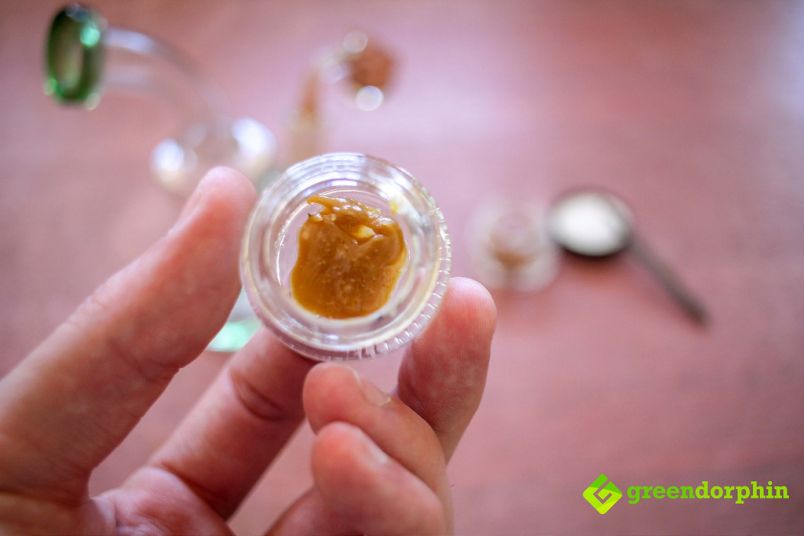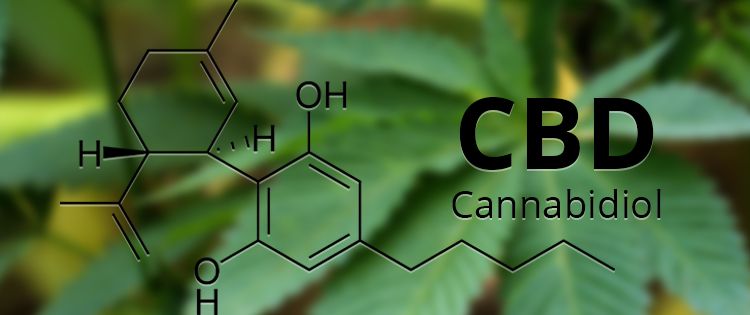As the acceptance and usage of medicinal marijuana are growing, researchers are expanding their studies to discover more about the potential health benefits of the different compounds of the cannabis plant.
Cannabis plants produce cannabigerolic acid, CBGA, in the early stages of their life cycle which acts as a master cannabinoid before it converts into THCA, CBDA, and CBCA.
As of today, CBD and THC are the most well-known cannabinoids in the marijuana plant due to their positive impact on the mind and the body.
One of the latest discoveries in the cannabis industry are CBD dabs, but more on that later.
What is CBD?
CBD, also known as cannabidiol, is a non-psychoactive compound. Meaning, CBD will not produce a high in the brain like THC does. Studies have shown that CBD also has the ability to interfere with a bad trip due to taking a high dose of THC.
CBD is commonly produced by using a CO2 extraction method and is found in a variety of hemp products.

CBD can be taken in a number of different ways but CBD dabs are proving to be the fastest and most effective way to get a therapeutic daily dose of your cannabidiol.
CBD dabs are basically CBD concentrates extracted from the hemp or cannabis plant and usually come in the form of crystals, shatter or wax. With the use of a dab rig, CBD dabs produce vapor through flash vaporization which is then to be inhaled by the user.
How does CBD work?
CBD has been found to be highly effective on the human body and has a lot of medical benefits. CBD works similarly to other cannabinoids by interacting with the human body’s built-in endocannabinoid system (ECS) through our endocannabinoid receptors.
By working through combining with CB1 and CB2 receptors, it balances the state of homeostasis.

What are the benefits of CBD and does it have side effects?
CBD has shown promising results throughout the years and below are some of the disorders that it is commonly used for:
- Treating glaucoma, thanks to its neuroprotective properties and vasodilator effects, it can treat and prevent glaucoma.
- Kills drug-resistant bacteria, methicillin-resistant microbial strains such as MRSA that causes staph infections to become drug-resistant.
- Anti-inflammatory properties, a 2013 study has shown that CBD can reduce inflammation such as inflammatory bowel disease.
- Increasing appetite, studies have shown CBD’s impact on loss of appetite and its ability to stimulate it. CBD has helped cancer patients and people who have HIV with their lack of appetite.
- Inhibits cancer cell growth, a study done in 2014 found that CBD could reduce the growth of cancer cells and tumors.
- Helps with depression and insomnia, usage of CBD has benefited individuals who suffer from depression and struggle to sleep.
- Treats psoriasis, people who suffer from psoriasis swear that using CBD has cured them.
- Works as a pain reliever, people who suffer from chronic pain often use CBD.
- Huntington’s disease, CBD’s neuroprotective properties have the potential of treating neurodegenerative conditions such as Huntington’s disease.
Other benefits are helping with bladder dysfunction, epilepsy, and reduce seizures and convulsions.
As for CBD side effects, studies that have been conducted have shown promising and generally positive results with no major side effects.
However, similar to other therapeutic products, it is always recommended to start with a low dosage and follow the instructions.
- How to Use Waxmaid Honey Pen? - April 9, 2024
- How To Choose The Best Electric Dab Rig For Christmas - December 7, 2023
- Maintenance Matters: Keeping Your Glass Water Bong in Pristine Condition - October 9, 2023


